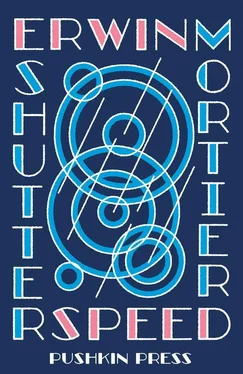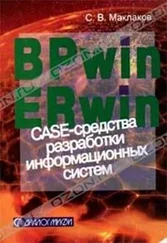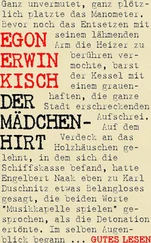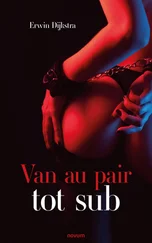My father lay by the western wall, a few paces from the shop, under a slab of unpolished Belgian bluestone which always left my hands white with dust when I ran them over the rough-hewn edges. On hot afternoons I sometimes smeared a gob of spittle on the slab and watched the stain dwindle rapidly in the sunshine. Walking home from school I would show off to my friends by skipping down the gravelled paths between the graves, chanting the names on the headstones to the tune of nursery songs, and I would make a point of slipping my father’s name in among the rest without anyone noticing. I tucked him up and sang him lullabies, leaving him to turn over each time the church bell struck the hour while he carried on sleeping and dwindling.
Dying might be a bit like evaporating, dissipating into the afternoon, succumbing to the soporific scrabble of pigeons in the guttering on the roof, and heaven was the place where the souls of the dead condensed on God’s cold countenance and ran like tears down His cheeks into His cupped palm.
In the classroom Death carried a scythe over his shoulder and turned an hourglass. His face was obscured by a pitch-black cloak, with ‘Time flies, use it wisely!’ written across it in flaming letters, but each time the classroom door swung shut he fluttered so frivolously on the pin holding him to the noticeboard that I couldn’t take him too seriously.
He ought to have merely swayed in a noble sort of way, with the slow grace of seaweed rippling on the tide, ruling over a domain where nothing moved of its own accord, rather like the beetles I kept in jars at home, who bided their time in utter immobility. Eventually they grew so fragile that their antennae fell off when I lifted their glass dungeon with both hands and shook it.
I tried holding my breath some days, and if I kept it up long enough I could feel something inside me drop through narrow funnels, but my midriff rebelled and drew gulps of fresh air into my lungs. When I tried closing my eyes against the light, I found myself sinking deeper and deeper into an aching tide of boredom that swelled each time the tower bell struck another quarter-hour.
I wanted to lose myself, lose a shoe, feel my socks sliding off my feet between the sheets, or my feet sliding out of my socks, and then fumble around to retrieve them, which would be in vain because they were just as lost as I was. But I was dangling like a fly in a daytime web and there was no escape.
‘If you like, you can pour those lovelies into the jars,’ said Aunt, reaching me the bowl with peas.
‘Mind you don’t spill any. Peas are in precious short supply, what with the drought these past weeks.’
I shook my head, stood up and made off towards the road, while she called after me not to be too long. I ran round the back, down the church lane between the claustrophobic beech hedges which only last month had been alive with buzzing beetles, past the tree-lined alleyway to the big house, and past the tankers pumping chilled milk into stainless-steel vats at the dairy.
I slowed my pace along the last row of cottages before the bridge across the stream. I settled myself on the brick parapet. It was my favourite spot for doing nothing but taking in the sweet summer air, the whisper of the wind in the rushes along the bank, and the water sliding languidly beneath my feet towards the manor. Upon reaching the trees in the park, the stream branched out into countless little creeks which vanished among the trunks before coming together again in the pond by the terrace, where carp rose to the surface, snapping for air or midges in the drowsy warmth, and swans curved their necks into question marks.
In those days the world still fitted in my hand, but my hold on it was not as tight as I imagined. I saw my face reflected in the dark water, ringed by a school of sticklebacks which darted away into the weed when I swung my legs over the parapet.
I was reaching the age of standing very close to my wardrobe mirror, not to watch the glass mist up with my breath, but to butt my head against my reflection and shatter the image of myself sitting on the side of my bed, hunched over the suitcase full of postcards, letters and photos, rooting and rooting among all those dead papers with fingers itching to tear everything into tiny scraps. Not that I ever did.
The days were still circular in shape. As far as I was concerned the sun was tied to the spire with invisible string, turning around the earth, whatever Mr Snellaert or Galileo said.
I heard the church bells signalling the end of vespers. Another moment or two and I would hear the women’s voices in the lane and the patter of their shoes on the cobbles.
The daylight was already tinged with blue in the linden trees by the graveyard when I made my way back home. From the open door of the café across the road the smell of stale beer and the jangle of the jukebox wafted towards me. The church was closed. The stained-glass windows, which glowed crimson during the service, had reverted to blackness.
I walked down the path among the graves as solemnly as I could, fighting down the urge to hop and skip, and only quickened my step when I knew I was screened from view first by the branches of the linden trees and then by the paling around the rectory garden.
I liked the orderliness of the grand register of deaths that formed the heart of my inner world. God himself had put His flock to sleep in neat rows, like a collection of stamps in an album, postmarked with the dates of their first and last breaths. He was up in the belfry, using a magnifying glass and tweezers to feather the gunmetal craws of pigeons, which He flung into the sky by the handful each time the bells pealed.
The master said that the names of everybody who had ever lived or would ever live were written in the palm of His hand — some more smudged than others, he had added, casting a meaningful look at me.
*
As I pushed the door open, the tinkle of the shop’s bell betrayed my presence. I glimpsed Uncle Werner at the far end of the passage, looking in my direction. He could not have seen me in the dark, but I could see him patting someone’s arm, some visitor sitting beside him at the kitchen table beneath the lamp with the frosted glass shade, which was already lit. As I approached I recognised the tobacco-thickened voice of the dearly beloved leader of our flock, the venerable Father Amelinckx.
‘I suppose they’ll put up a notice,’ I heard him say, ‘but I would rather tell people myself …’ He fell silent when I came in.
I expected a ticking off for leaving great big footprints all over the freshly raked earth between the graves, which the verger always made such a fuss about, but all he did was put out his hand and say my name.
Uncle Werner motioned me to shake the proffered hand.
‘Sit yourself down,’ cried Aunt, coming in from the back with a steaming pan in her hands.
I went up the stairs, across the landing, and into my bedroom. I shut the door behind me, stripped off my shirt, wadded it into a ball to mop the sweat from my chest and armpits, then dropped it on my writing table.
On evenings like this nothing was emptier than my room. The penetrating smell of the lino creaking under my feet and the dust in the flaking paint on the windowsill got into my nose, making me even more tense.
I felt like climbing the walls, somersaulting backwards, screwing up sheets of paper, kicking everything in sight. I grabbed my school satchel and hurled it on my bed like a child having a tantrum, I gave the spiral-bound desk diary such a hard shove that the days rose up and swayed to and fro accusingly.
I slammed open the leather-bound missal Aunt gave me for my First Communion, which I always left on my table in exactly the same position just to get at her. The tissue-thin pages rippled and came to rest.
Читать дальше












